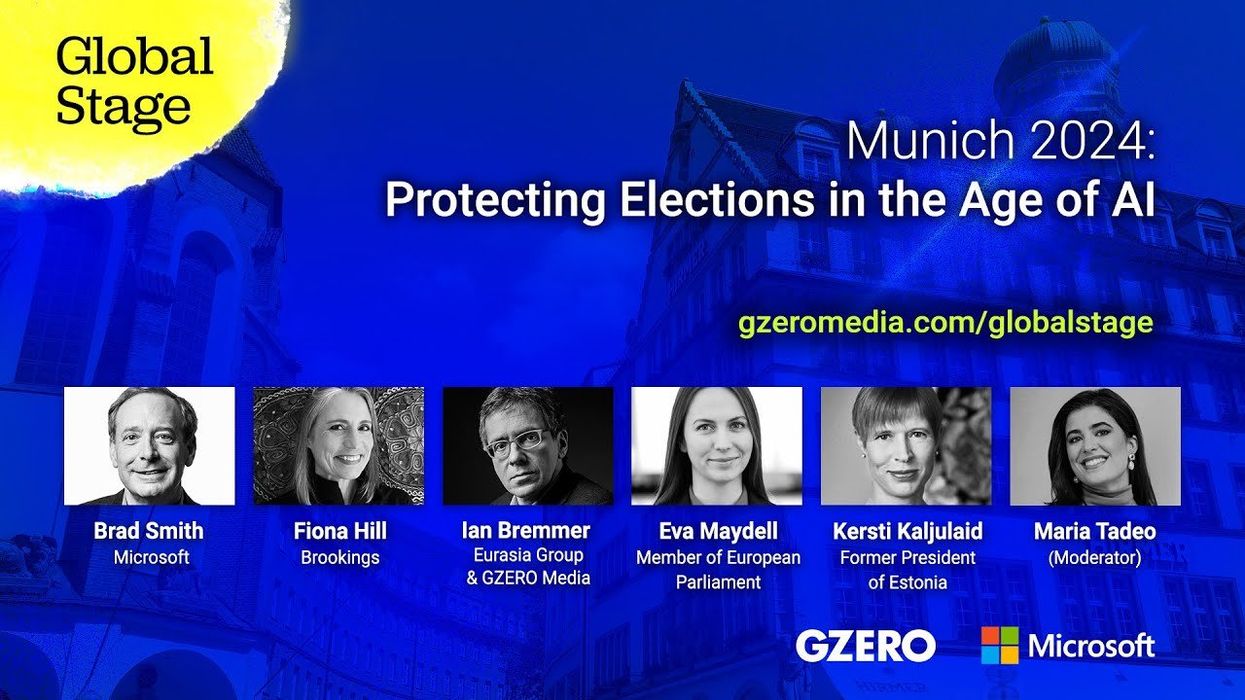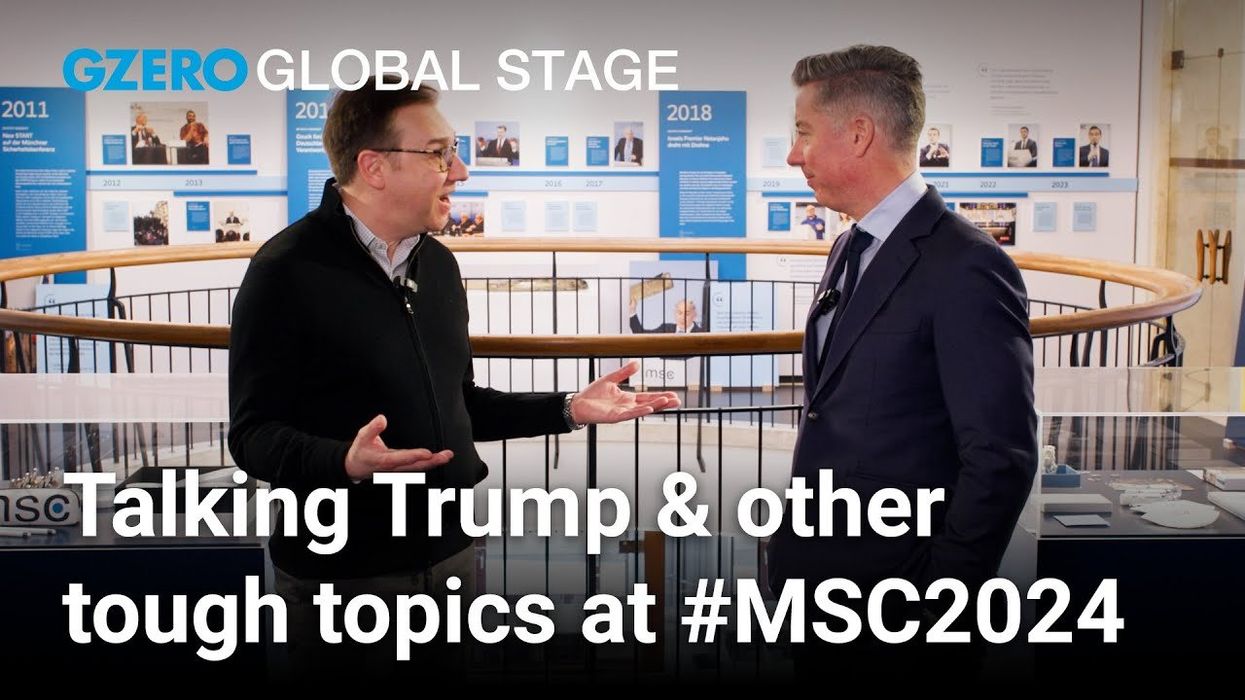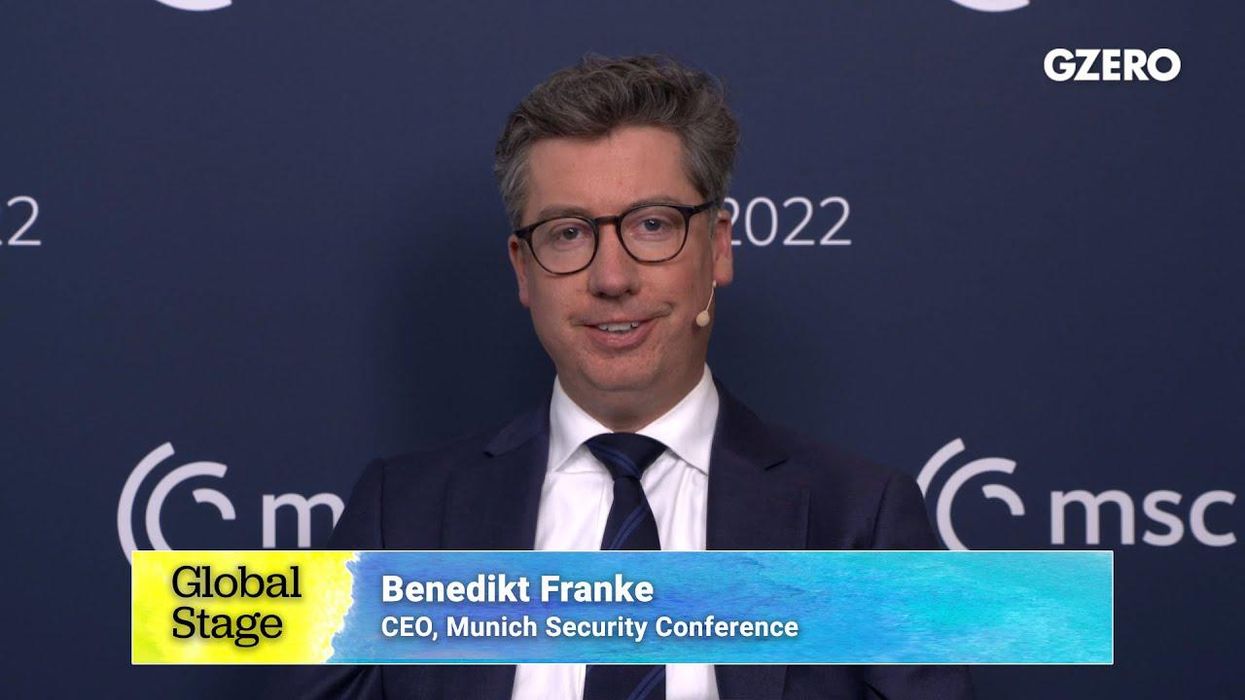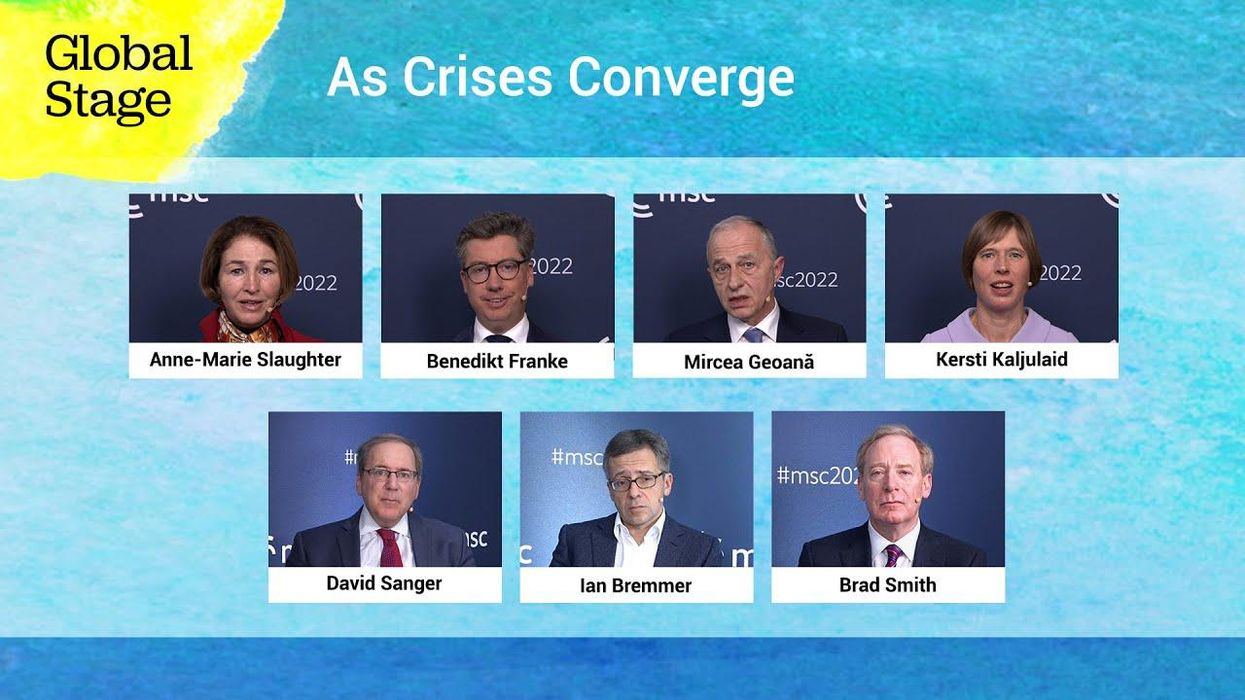Events
How to protect elections in the age of AI
GZERO Media, on the ground at the 2024 Munich Security Conference, held a Global Stage discussion on Feb. 17 entitled “Protecting Elections in the Age of AI.” We spoke with Brad Smith, vice chair and president of Microsoft; Ian Bremmer, president and founder of Eurasia Group and GZERO Media; Fiona Hill, senior fellow for the Center on the United States and Europe at Brookings; Eva Maydell, an EU parliamentarian and a lead negotiator of the EU Chips Act and Artificial Intelligence Act; Kersti Kaljulaid, the former president of Estonia; with European correspondent Maria Tadeo moderating. These thought leaders and experts discussed the implications of the rapid rise of AI amid this historic election year.
Feb 17, 2024




